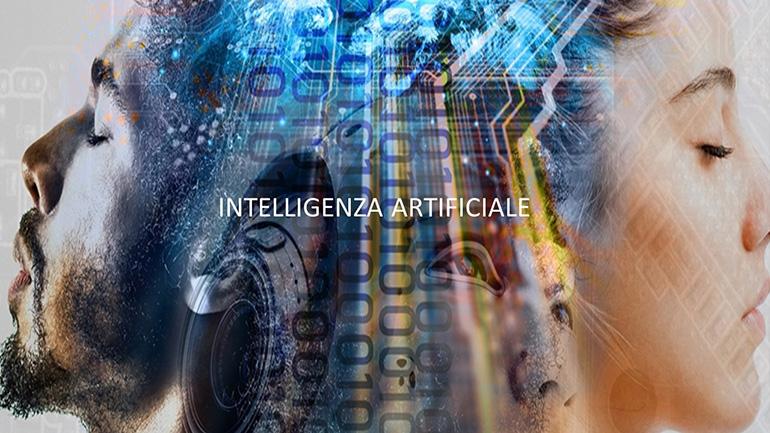Dante’s algorithm

Editorial by Stefano Lavorini
“State contenti, umana gente” al quia;/chè, se potuto aveste veder tutto,/mestier non era parturir Maria” (“Be content, then, all you mortals, with the quia,/for could you, on your own, have understood,/there was no need for Mary to give birth”).
Do you remember this famous passage from the Divine Comedy, verse 37 of Canto 3 of Purgatory, in which Dante invites us to enjoy what is given to us, without having the illusory ambition of understanding everything?
In those times, in fact, people were given to know that things "are", without, however, expecting to know also the “how” and the “why”, since God decided what to reveal to the limited mind of human beings. And where reason arrived at its limit, man could/can go further only thanks to Faith …
After more than seven hundred years, today, in these times characterised by the arrival of artificial intelligence (“are”), we can only return to having “faith” in the goodness of this new technology, despite knowing nothing of the algorithms that have been implemented, on which basis they are chosen (“how”) and for what purpose (“why”): more is not to be known, whether involving governments or institutions, or simple citizens.
In short, the world is changing, led by a few who hold the cards, that is, those who work on the development of Artificial General Intelligence (AGI), followed, in the illusion of being among the protagonists, by a small group specialized in “weak” artificial intelligence, aimed at solving particular problems. All the others, well-behaved in their place, are grateful for the “magnificent and progressive” * destinies that await them.
A series of data and facts show that the above is not an exaggeration. The market value of the ‘Magnificent Seven’, that is, the American technological giants that dominate the financial markets (Apple, Microsoft, Google Alphabet, Amazon, NVIDIA, Tesla and Meta) have exceeded 12 trillion dollars (twelve thousand billion dollars), the equivalent of the GDPs of Germany, Japan and India, that is, the third, fourth and fifth global economies put together. This stratospheric figure was reached last year, adding 5 trillion (five thousand billion) dollars in 12 months to their market value. Very good!
It’s a phenomenon viewed with some concern, as demonstrates the fact that Google, Apple, Meta, Amazon, Microsoft, ByteDance and Samsung have been designated as "gatekeepers" by the EU Commission and subjected to surveillance on the basis of the new antitrust rules of the Digital Markets Act.
The accusation is that these seven intermediation companies for the sale of products or services have become monopolists in their reference market. Ouch! Ouch! Ouch!
But that’s not all. On 13 March, the European Parliament approved the law on artificial intelligence, which should guarantee security and compliance with fundamental rights (the regulation still has to be subjected to final verification by lawyer-linguists and should be finally adopted before the end of the legislature. In addition, the law still has to be formally approved by the Council).
The objective, in this case, is to protect fundamental human rights, democracy, the rule of law and environmental sustainability from high-risk AI systems that threaten citizens: among these, biometric categorization systems based on sensitive characteristics, the extrapolation of facial images, but also emotion recognition systems in the workplace and at school, social credit systems, predictive policing practices, etc. A nice list of nightmare scenarios, no doubt about that.
AI systems have certainly raised ethical concerns; they could, in effect, contribute to increasing the gender gap, impact on the privacy of individuals or facilitate the manipulation of media contents.
For this reason, UNESCO has also issued Recommendations on the ethics of artificial intelligence: it’s a document with legal value, agreed at international level with the aim of ensuring that every organization, company or individual that develops or implements artificial intelligence acts in an ethical way in line with human rights.
But who will respect the rules and requirements that are set out? The large American and Chinese corporations? Only Europe, unfortunately, appears to have the goal of placing the person at the centre of AI.
In practical terms ...
The effects of the introduction of artificial intelligence (IA) on the labour market are for the moment still limited. For the time being, it would seem that rather than replacing workers; AI is modifying activities, with repercussions on training needs. This is what emerges from an initial transnational survey carried out by OCSE in the context of the “Work, Innovation, Productivity and Skills” research programme. The survey was carried out in 2022, and is probably already outdated and has been superseded, considering that ChatGPT was made public in November of 2022 and the current GPT-4 version is able to achieve human-level performance in various professional and academic areas.
Faced with this phenomenon which, in all events, marks the beginning of a new era, opinions on security and ethics are extremely heterogeneous and divergent. Indeed, we seem to have returned to scenarios already seen, in which the growth of technology becomes uncontrollable and irreversible, with unpredictable consequences for humanity.
The words of Stephen William Hawking, one of the most authoritative and well-known theoretical physicists in the world, noted above all for his work on black holes, quantum cosmology and the origin of the universe, come to mind. Hawking sustained that, neither technological progress nor robots will lead to an economic apocalypse, but rather, man’s greed: «If machines end up producing everything we need, the outcome will depend on how the output will be distributed. We could all enjoy a serene life full of leisure, or the majority of people could find themselves in poverty if the machine owner lobby opposes the redistribution of wealth. So far, the trend seems to be towards the second option, with technology creating growing inequality **».
* Giacomo Leopardi, “La Ginestra” (The Gorse)
** Stephen William Hawking "Ask Me Anything" on Reddit, 2018

Photo: Bozza della Raccomandazione sull’etica dell’intelligenza artificiale dell’Unesco, www.unesco.it















